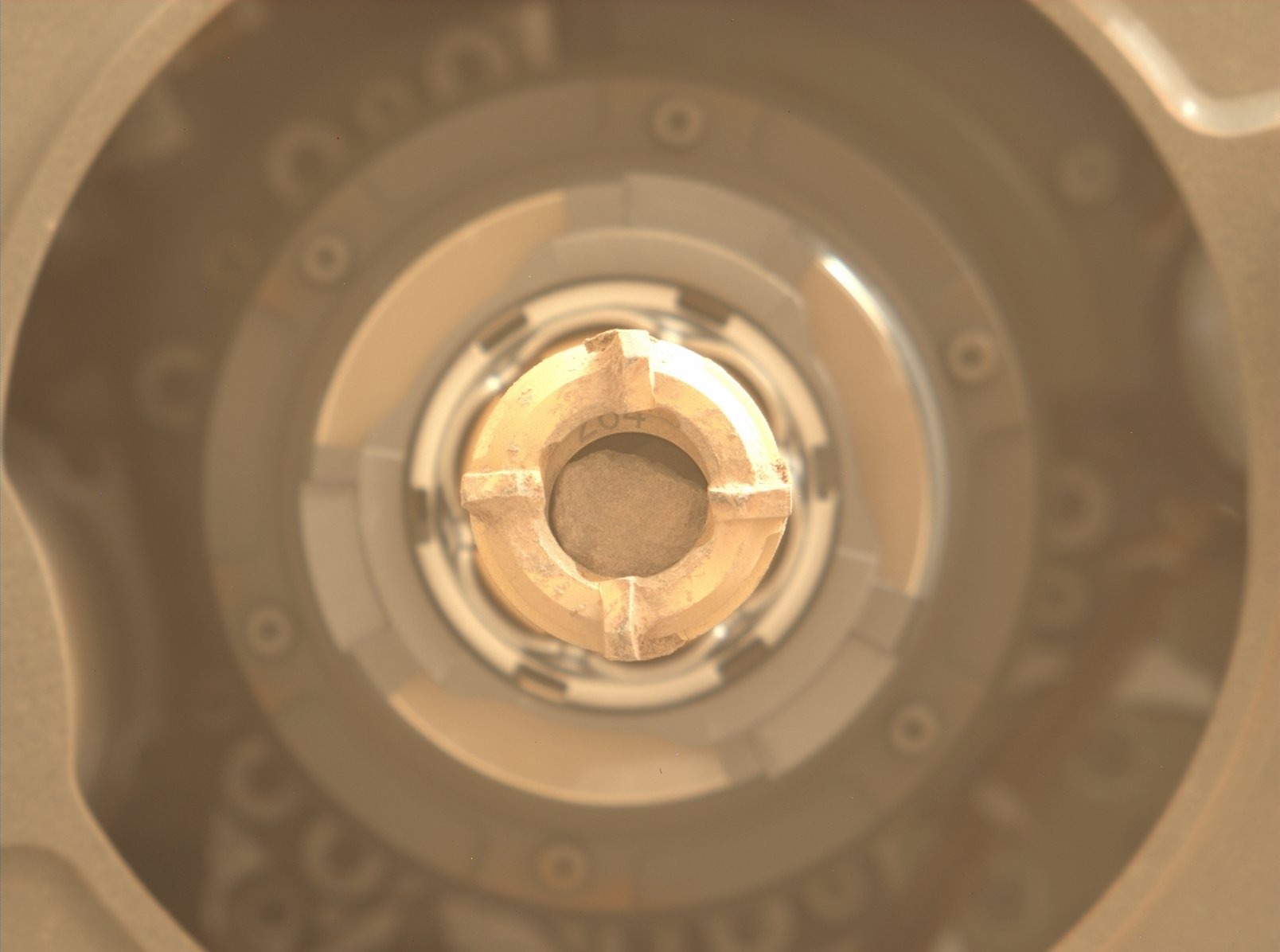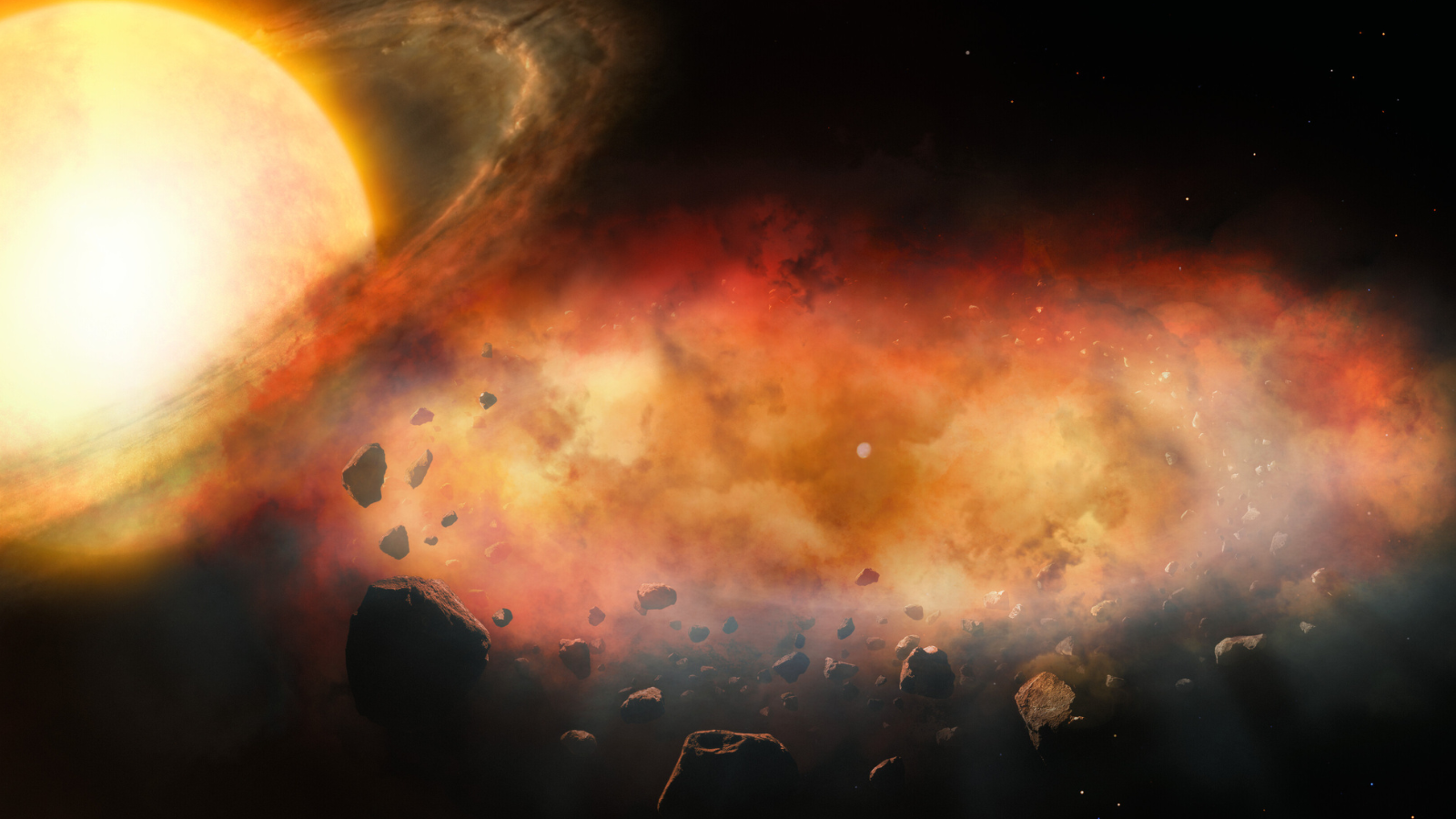Perseverance Mars rover picks up 'lucky' 13th rock sample for return to Earth
The sample, and dozens more like it, could come to Earth as early as 2033.

NASA's Perseverance rover has snagged another Red Planet sample for eventual shipment to Earth.
Perseverance, which is exploring Jezero Crater on Mars, collected its 13th drilled-out rock core in recent days, according to NASA's Jet Propulsion Laboratory (JPL) in Southern California, which manages the car-sized robot's mission.
"A beautiful site for collecting lucky rock core #13! Currently nerding out over this fine-grained sample, and aiming to get another like it from this area. #SamplingMars," JPL officials said via Twitter on Tuesday (Oct. 4), in a post that also featured photos of the newly collected sample.
Related: 12 amazing photos from the Perseverance rover's 1st year on Mars
As Perseverance grows its cache of Red Planet rocks, rover team members are preparing for an ambitious future phase of the mission: sending these samples to Earth, perhaps as soon as 2033. The sample-return campaign, a joint effort of NASA and the European Space Agency (ESA), offers a good chance to hunt for signs of ancient Mars life, as Jezero Crater hosted a big lake and a river delta billions of years ago.
The nominal plan is for Perseverance to deliver the rock cores to a NASA sample-return lander, which will also carry a small rocket. The rocket will launch the samples to Mars orbit, where they'll meet up with an ESA-provided Earth return orbiter. (All of this hardware save Perseverance is still in development.)
Perseverance is collecting two samples from each rock that it drills, however. The rover will keep one set of samples on board and cache the other set in one or more "depots" on Jezero's floor.
Breaking space news, the latest updates on rocket launches, skywatching events and more!
The depots represent a backup option, in case Perseverance isn't able to haul the samples to the lander. The lander will also carry two small "fetch" helicopters, which are designed to bring the sample tubes back from the depot(s) one by one if need be.
Simultaneously, NASA is pushing the Ingenuity helicopter that accompanied Perseverance to the surface in February 2021 well beyond its design lifetime, and finding that the helicopter is doing well — presenting an opportunity for future drone development. Indeed, Ingenuity's success is already shaping NASA's Mars exploration plans; the two fetch helicopters that will launch with the sample-return lander, for example, will be very similar to Ingenuity.
Ingenuity was originally rated for just five flights and is now looking to break that mark by at least sevenfold. Its most recent and 33rd flight took place in late September; although it landed safely, officials are examining a piece of debris that fell away harmlessly from one of the legs during the flight.
Follow Elizabeth Howell on Twitter @howellspace. Follow us on Twitter @Spacedotcom or Facebook.

Elizabeth Howell (she/her), Ph.D., was a staff writer in the spaceflight channel between 2022 and 2024 specializing in Canadian space news. She was contributing writer for Space.com for 10 years from 2012 to 2024. Elizabeth's reporting includes multiple exclusives with the White House, leading world coverage about a lost-and-found space tomato on the International Space Station, witnessing five human spaceflight launches on two continents, flying parabolic, working inside a spacesuit, and participating in a simulated Mars mission. Her latest book, "Why Am I Taller?" (ECW Press, 2022) is co-written with astronaut Dave Williams.

